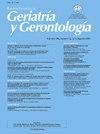智利老年照料者培训方案:定性研究
Q3 Medicine
引用次数: 0
摘要
背景和目的拉丁美洲,特别是智利的人口老龄化正在迅速推进,这增加了对能够提供高质量护理的训练有素的护理人员的需求。然而,护理人员培训仍然有限,在线教育项目代表了一种创新的选择。本研究旨在描述参加智利一所大学开发的在线培训计划的老年人家庭照顾者的经历。方法采用内容分析的描述性定性研究方法。采用有目的的抽样方法,对参加了13期在线培训计划的11名女性家庭照顾者进行了半结构化访谈。内容是基于全面的老年评估(身体,心理,功能,社会和精神领域)和照顾者的自我照顾。结果家庭照顾者认为该项目提供了知识和情感支持,帮助他们面对照顾责任。从分析中可以得出四个主要类别:1)多重学习;2)由护生主导模拟;3)有意义的支持;4)意识到照顾者的角色和持续学习的需要。结论在线教育项目受到护理人员的欢迎,他们报告了相关的学习经验,并提高了他们的角色意识。虽然由于样本量小,研究结果应谨慎解释,但该计划可能有助于加强护理人员的能力和支持网络。建议根据不同的背景调整内容并评估项目的可持续性。本文章由计算机程序翻译,如有差异,请以英文原文为准。
Programa de formación de cuidadores familiares de personas mayores en Chile: un estudio cualitativo
Background and objective
Population aging in Latin America, particularly in Chile, is advancing rapidly, increasing the demand for trained caregivers who can provide quality care. However, caregiver training remains limited, and online education programs represent an innovative alternative. This study aimed to describe the experiences of family caregivers of older adults who participated in an online training program developed by a Chilean university.
Methods
A descriptive qualitative study with content analysis was conducted. Purposive sampling was used, and semi-structured interviews were carried out with 11 female family caregivers who participated in a 13-session online training program. The content was based on comprehensive geriatric assessment (physical, mental, functional, social, and spiritual domains) and caregiver self-care.
Results
Family caregivers valued the program as a space that provided both knowledge and emotional support to help them face their caregiving responsibilities. Four main categories emerged from the analysis: 1) multiple learnings; 2) simulation led by nursing students; 3) meaningful support, and 4) awareness of the caregiving role and the need for ongoing learning.
Conclusions
The online educational program was well received by caregivers, who reported relevant learning experiences and greater awareness of their role. Although findings should be interpreted with caution due to the small sample size, the program may help strengthen caregiver competencies and support networks. Adapting content to diverse contexts and assessing program sustainability is recommended.
求助全文
通过发布文献求助,成功后即可免费获取论文全文。
去求助
来源期刊

Revista Espanola de Geriatria y Gerontologia
Medicine-Medicine (miscellaneous)
CiteScore
1.90
自引率
0.00%
发文量
62
审稿时长
85 days
期刊介绍:
Una revista de gran prestigio por sus artículos originales de investigación y revisiones. Permite cubrir todas las áreas de la medicina pero siempre desde la atención al paciente anciano, y está presente en los más reconocidos índices internacionales.
 求助内容:
求助内容: 应助结果提醒方式:
应助结果提醒方式:


